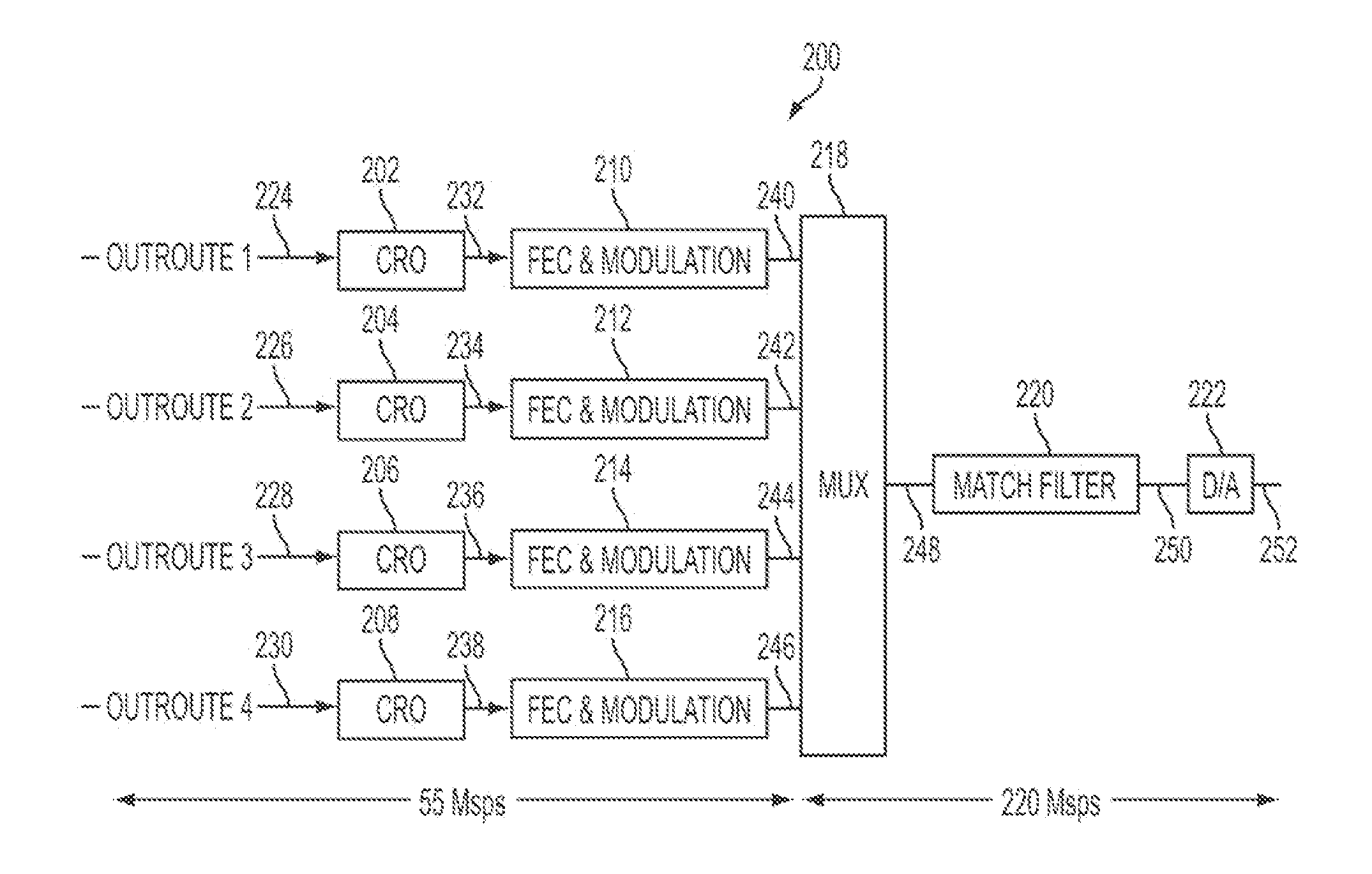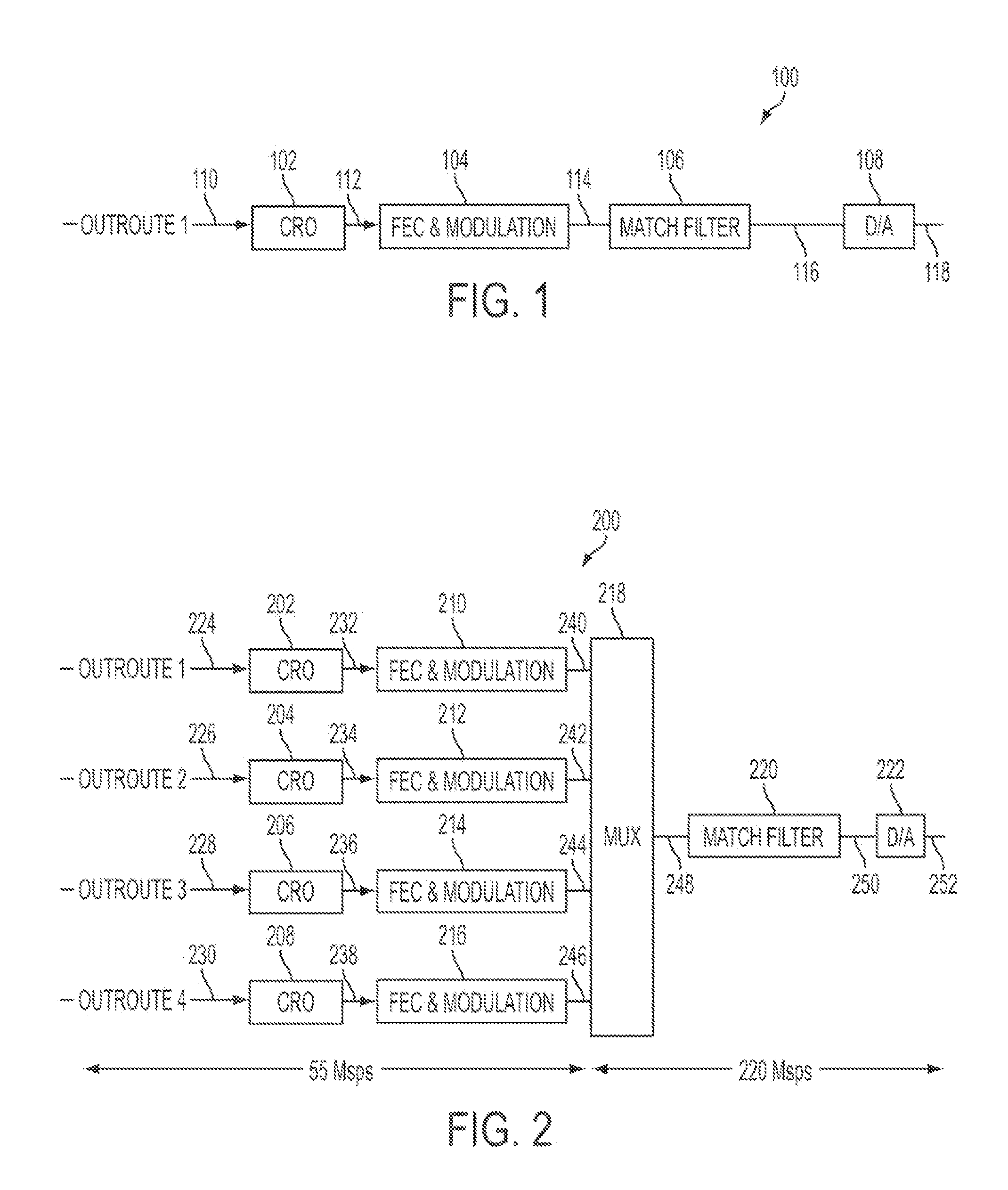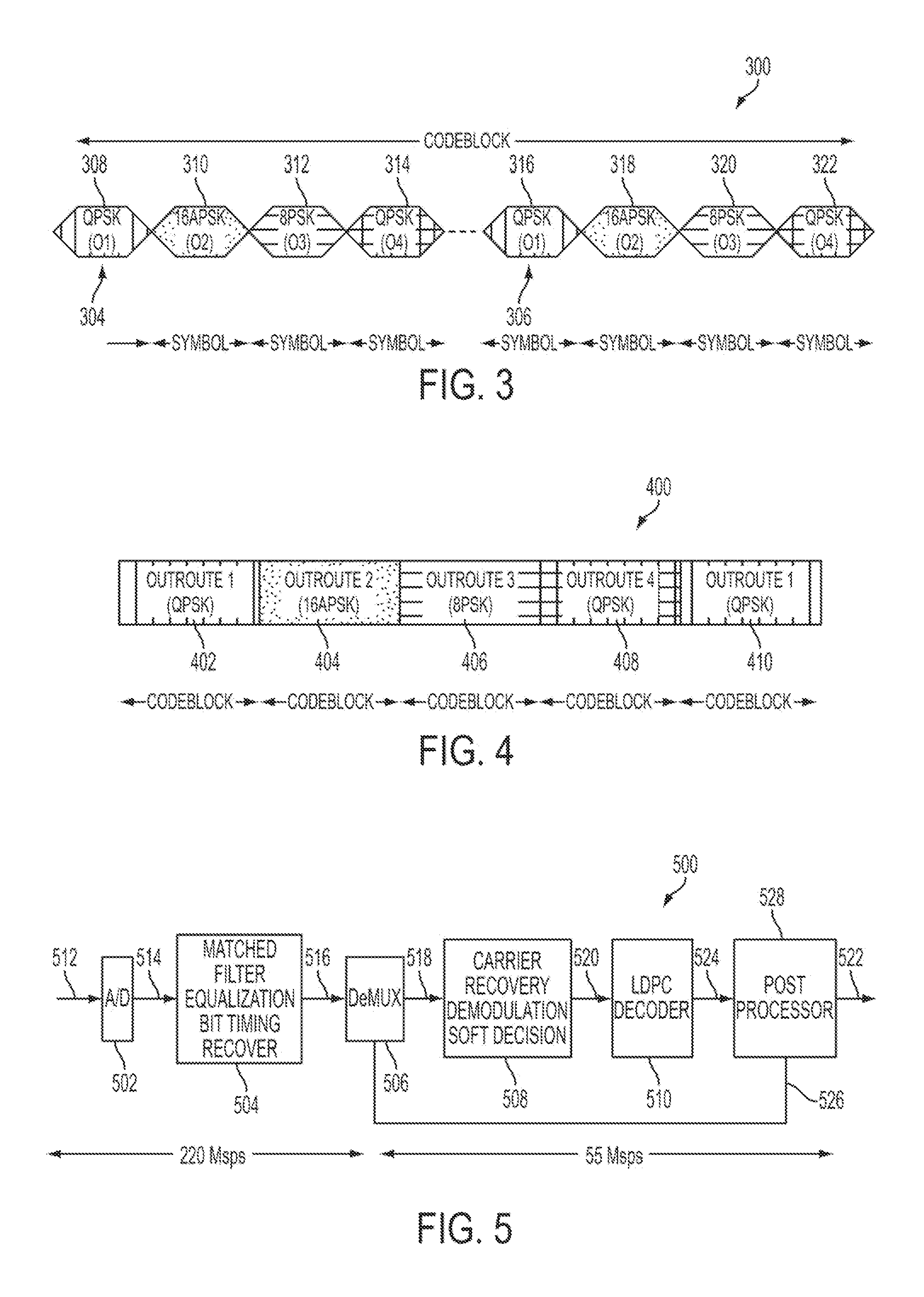System and method for multi-carrier multiplexing
a multi-carrier and multiplexing technology, applied in the field of multi-carrier multiplexing, can solve the problems of high power consumption and expensive equipment, and achieve the effect of low power consumption and increased efficiency
- Summary
- Abstract
- Description
- Claims
- Application Information
AI Technical Summary
Benefits of technology
Problems solved by technology
Method used
Image
Examples
Embodiment Construction
[0035]In accordance with an aspect of the present invention, a plurality of outroute data streams may be multiplexed at the transmitter side, thereby achieving multiple times greater data capacity than existing transmitters. Similarly, a received multiplexed data stream may be demultiplexed at the receiver side in order to achieve greater data capacity.
[0036]In an example embodiment, a transmitter has a four outroute streams, multiplexed into one 220 Msps outroute stream. The outroute streams may be multiplexed with either a Time Division Multiplexing (TDM) scheme or a Code Division Multiplexing (CDM) scheme, that can be sent over the satellite system. Before being multiplexed, each outroute stream may be coded with a relatively low rates, for example 55 Msps. Example transmitters in accordance with aspects of the present invention will now be described with reference to FIGS. 2-4.
[0037]FIG. 2 illustrates an example transmitter, in accordance with an aspect of the present invention....
PUM
 Login to View More
Login to View More Abstract
Description
Claims
Application Information
 Login to View More
Login to View More - R&D
- Intellectual Property
- Life Sciences
- Materials
- Tech Scout
- Unparalleled Data Quality
- Higher Quality Content
- 60% Fewer Hallucinations
Browse by: Latest US Patents, China's latest patents, Technical Efficacy Thesaurus, Application Domain, Technology Topic, Popular Technical Reports.
© 2025 PatSnap. All rights reserved.Legal|Privacy policy|Modern Slavery Act Transparency Statement|Sitemap|About US| Contact US: help@patsnap.com



